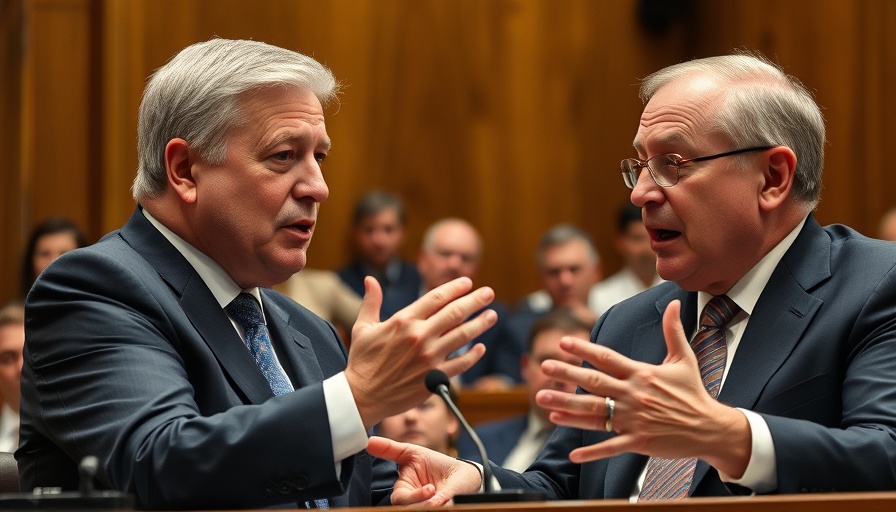
RFK Jr.’s Testimony: A Heated Exchange
In the latest Senate hearing, Secretary of Health and Human Services Robert F. Kennedy Jr. faced a barrage of fact-checking from U.S. Senator Chris Murphy (D-CT) that highlighted discrepancies in Kennedy's statements regarding vaccine safety and approval practices. The session turned confrontational as Murphy explicitly challenged Kennedy’s claims that appeared to contradict his previous assurances to the committee.
Breaking Trust: The Vaccination Debate
Murphy's criticisms were sharp, pointing out that Kennedy had failed to uphold his promise that the Food and Drug Administration (FDA) would not deviate from established vaccine standards. Instead, as soon as Kennedy took office, he announced new standards that seemed to undermine trust in vaccines. The senator articulated the potential dangers of misrepresenting vaccine information, noting how such rhetoric could decrease public faith in vital health measures like the measles vaccine.
The Implications of Misinformation
This confrontation is part of a broader narrative about vaccine hesitancy that has permeated public discourse, especially given the resurgence of diseases like measles. Kennedy’s interjections, during which he maintained, “All true,” counteracted Murphy’s insistence that “none of that is true,” underscoring the critical need for transparent and accurate information in healthcare discussions.
Public Trust Under Siege?
Senator Murphy eloquently conveyed the stakes of misinformation in a metaphorical illustration: he likened Kennedy's words to advising someone to swim in a likely toxic lake while simultaneously warning them of potential threats. Such mixed messaging can confuse the public and lead to significant trust issues with health initiatives.
What This Means for Public Health
The exchange between Kennedy and Murphy emphasizes a crucial issue for civil rights and public health advocates. With rising vaccine skepticism, it is essential to advocate not only for vaccine adoption but also for robust educational campaigns dispelling myths about vaccine safety. The stakes couldn't be higher; safeguarding public health is intertwined with the preservation of civil liberties and the overall integrity of health policies.
Future Implications for Vaccine Policy
As the dialogue surrounding vaccination continues to evolve, it's vital for policymakers, health officials, and advocates to work collaboratively to counteract misinformation. Future legislative and educational efforts must prioritize clarity and act swiftly to quash any inaccuracies propagated by influential figures in public office.
With the ongoing health policy debates, attention must be paid to the relationship between accurate public health messaging and the protection of civil rights. It is crucial for attorneys and advocates in the field to remain vigilant and proactive in combating misinformation that threatens both public health and civil liberties.
 Add Row
Add Row  Add
Add 

 Add Row
Add Row  Add Element
Add Element 




Write A Comment